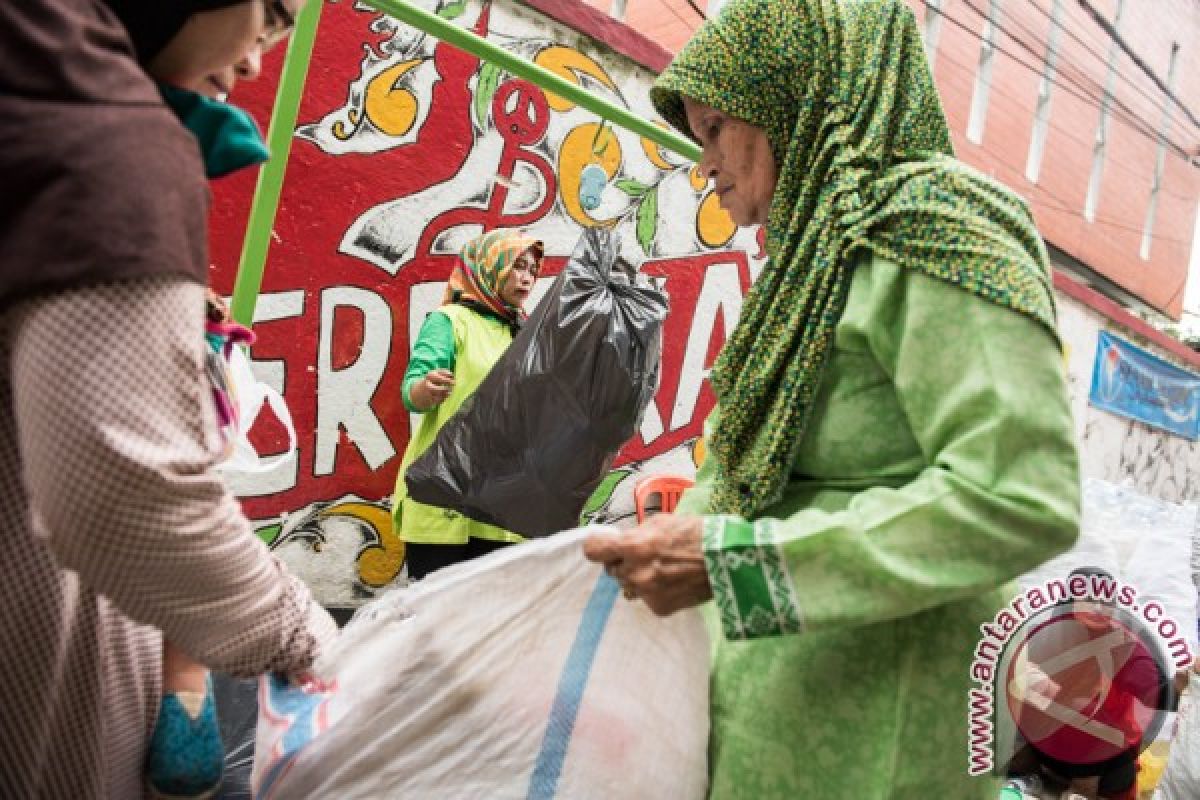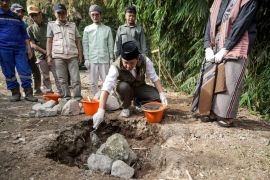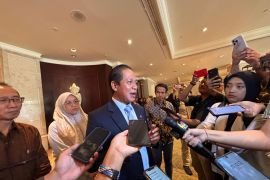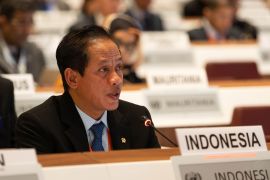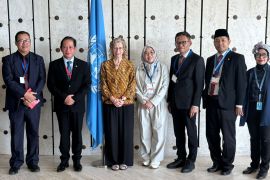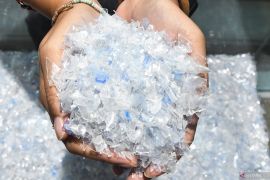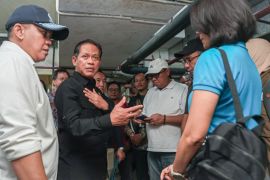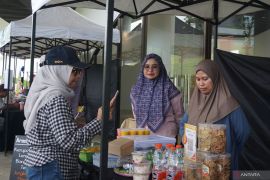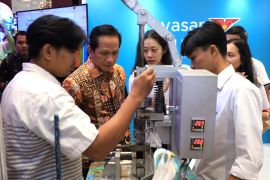On the occasion, Indonesia, along with Norway, Switzerland, the United Kingdom and Uruguay invited Heads of the Permanent Missions to the UN Office at Geneva and heads of delegation at the meeting of the Basel Convention`s Open-ended Working Group to participate in the High-Level Event on Marine Plastic Waste and Micro-plastics.
In a written statement from Indonesian Permanent Representative Office for the UN in Geneva received in Jakarta over the weekend, Indonesia was also calling for a reduction in global plastic waste.
Marine plastic waste is an environmental problem occurring on a global scale today.
Found in every part of the ocean, plastic wast can be transported over great distances, and its durability means it will remain in the ocean for a long time.
Global plastic production has increased steadily and has reached 320 million tonnes a year. Of the estimated 6.3 billion tonnes of plastic waste produced since the 1950s, only 9 percent has been recycled and another 12 percent incinerated.
The greatest burden of plastic waste entering the sea is likely to arise where waste collection systems are ineffective or even non-existent.
Developing countries in particular may face challenges in managing the rapidly growing volume of plastic waste, and may
face challenges if they have not developed sufficient capacity to dispose of plastic waste and rely on the continued availability of recycling capacity in other states.
Pollution by marine plastic litter and micro-plastics needs to be tackled at source.
It is not sustainable to clean up plastic pollution once it has entered the sea.
United Nations Environment Assembly (UNEA) has underlined that preventive action through waste minimization and environmentally sound waste management should be given the highest priority.
Attending the Basel Convention Working Group meeting, Indonesia was represented by the Ministry of Environment and Forestry Director of Waste Management Novrizal Tahar.
On the occasion Novrizal delivered a policy and strategy to reduce marine plastic waste by 30 percent by 2025.
The Indonesian government has carried out several national programs to increase public awareness in reducing the use of plastic.
In the meantime, the Indonesian Permanent Representative in Geneva, Ambassador Hasan Kleib, remarked that his country has
consistently supported the discussion of the issue of plastic waste at sea in various global forums, including the Basel Convention, in hopes of gaining support for increasing national institutional capacity and capacity.
"With the second longest coastline in the world, Indonesia has sea with biological and non-living resources in it that must continue to be maintained," Hasan said.
According to him, efforts to overcome plastic waste in the sea require global cooperation where all countries need to share experiences, transfer technology, and coordinate across borders.
Indonesia has cooperated with Norway in dealing with marine plastic waste in the Bay of Jakarta. With the issue of plastic waste at the global level, it is hoped that the form of cooperation in reducing plastic waste will become increasingly massive, effective and systematic.
Increasing the volume of plastic waste becomes a problem that needs to be addressed seriously. The Sea Education Association estimates that 8.3 billion tons of plastic has been produced since 1950.
Plastic waste has a bad impact on the environment because it is difficult to decompose due to the length of the carbon chain. Plastic pollution is feared to disrupt ecosystems and cause environmental damage.
Not only on the ground, plastic waste also has a bad impact on the sea, where the plastics and small plastic particles (micro-plastics) pollute marine biota and interfere with the balance of the ecosystem.
The oceans in Indonesia, known for their beauty and abundant wealth, continue to face the deadliest threats to their existence in the form of plastic waste pollution.
Hence, the "Movement for a Healthy and Clean Indonesian Ocean," launched by the Ministry of Marine Affairs and Fisheries (KKP), needs to be intensified.
The threats posed due to plastic waste polluting the Indonesian waters remain high, so various sections of society need to come together to tackle the problem.
Among the key hurdles faced is that Indonesia is one of the largest contributors of plastic waste, including the still rampant destructive fishing practices that have destroyed marine ecosystems.
During a visit to numerous areas in Indonesia, KKP Minister Susi Pudjiastuti claimed to have found several fishermen using large amounts of potassium cyanide to catch fish.
The use of only a gram of potassium cyanide can destroy about six square meters of marine ecosystems, according to the minister.
To this end, maintaining Indonesia`s seas is not the sole task of the government but also that of every citizen, as the oceans are the future of the nation.
The organization of "Pandu Laut Nusantara" was earlier launched, and all its members have vowed to collaborate in an attempt to protect the seas in Indonesia.
The members were also expected to work along with the surrounding communities and national fisheries stakeholders.
The Pandu Laut Nusantara Organization will serve as a bridge between the community and government to jointly maintain the sustainability of the seas.
Furthermore, the Ministry of Marine Affairs and Fisheries
will encourage world leaders to contribute to maintaining the conditions of the global ocean ecosystem.
At the 5th Our Ocean Conference (OOC) to be held on October 29-30, 2018, Indonesia will encourage world leaders to participate in maintaining the global ocean ecosystem.
Editing by Fardah Assegaf
Reporter: Otniel Tamindael
Editor: Suharto
Copyright © ANTARA 2018
